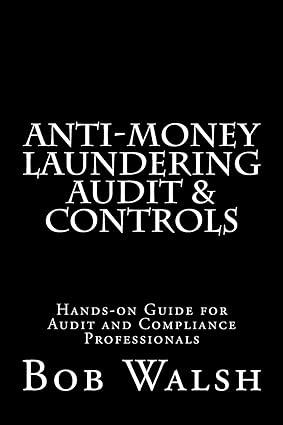Question
7-20 Basix Inc. calculates direct manufacturing labor variances and has the following information: Actual hours worked: 200 Standard hours: 250 Actual rate per hour: $12
7-20 Basix Inc. calculates direct manufacturing labor variances and has the following information:
Actual hours worked: 200 Standard hours: 250 Actual rate per hour: $12 Standard rate per hour: $10
Given the information above, which of the following is correct regarding direct manufacturing labor variances?
a. The price and efficiency variances are favorable. b. The price and efficiency variances are unfavorable. c. The price variance is favorable, while the efficiency variance is unfavorable. d. The price variance is unfavorable, while the efficiency variance is favorable
7-21 Flexible budget. Sweeney Enterprises manufactures tires for the Formula I motor racing circuit. For August 2017, it budgeted to manufacture and sell 3,600 tires at a variable cost of $71 per tire and total fixed costs of $55,000. The budgeted selling price was $114 per tire. Actual results in August 2017 were 3,500 tires manufactured and sold at a selling price of $116 per tire. The actual total variable costs were $280,000, and the actual total fixed costs were $51,000.
Prepare a performance report (akin to Exhibit 7-2, page 254) that uses a flexible budget and a static budget.
2. Comment on the results in requirement 1.
7-25 Flexible-budget and sales volume variances. Cascade, Inc., produces the basic fillings used in many popular frozen desserts and treatsvanilla and chocolate ice creams, puddings, meringues, and fudge. Cascade uses standard costing and carries over no inventory from one month to the next. The ice- cream product groups results for June 2017 were as follows:
Jeff Geller, the business manager for ice-cream products, is pleased that more pounds of ice cream were sold than budgeted and that revenues were up. Unfortunately, variable manufacturing costs went up, too. The bottom line is that contribution margin declined by $52,900, which is just over 2% of the budgeted rev- enues of $2,592,600. Overall, Geller feels that the business is running fine.
1. Calculate the static-budget variance in units, revenues, variable manufacturing costs, and contribu- tion margin. What percentage is each static-budget variance relative to its static-budget amount?
2. Break down each static-budget variance into a flexible-budget variance and a sales-volume variance. 3. Calculate the selling-price variance. 4. Assume the role of management accountant at Cascade. How would you present the results to Jeff
Geller? Should he be more concerned? If so, why?
Step by Step Solution
There are 3 Steps involved in it
Step: 1

Get Instant Access to Expert-Tailored Solutions
See step-by-step solutions with expert insights and AI powered tools for academic success
Step: 2

Step: 3

Ace Your Homework with AI
Get the answers you need in no time with our AI-driven, step-by-step assistance
Get Started


